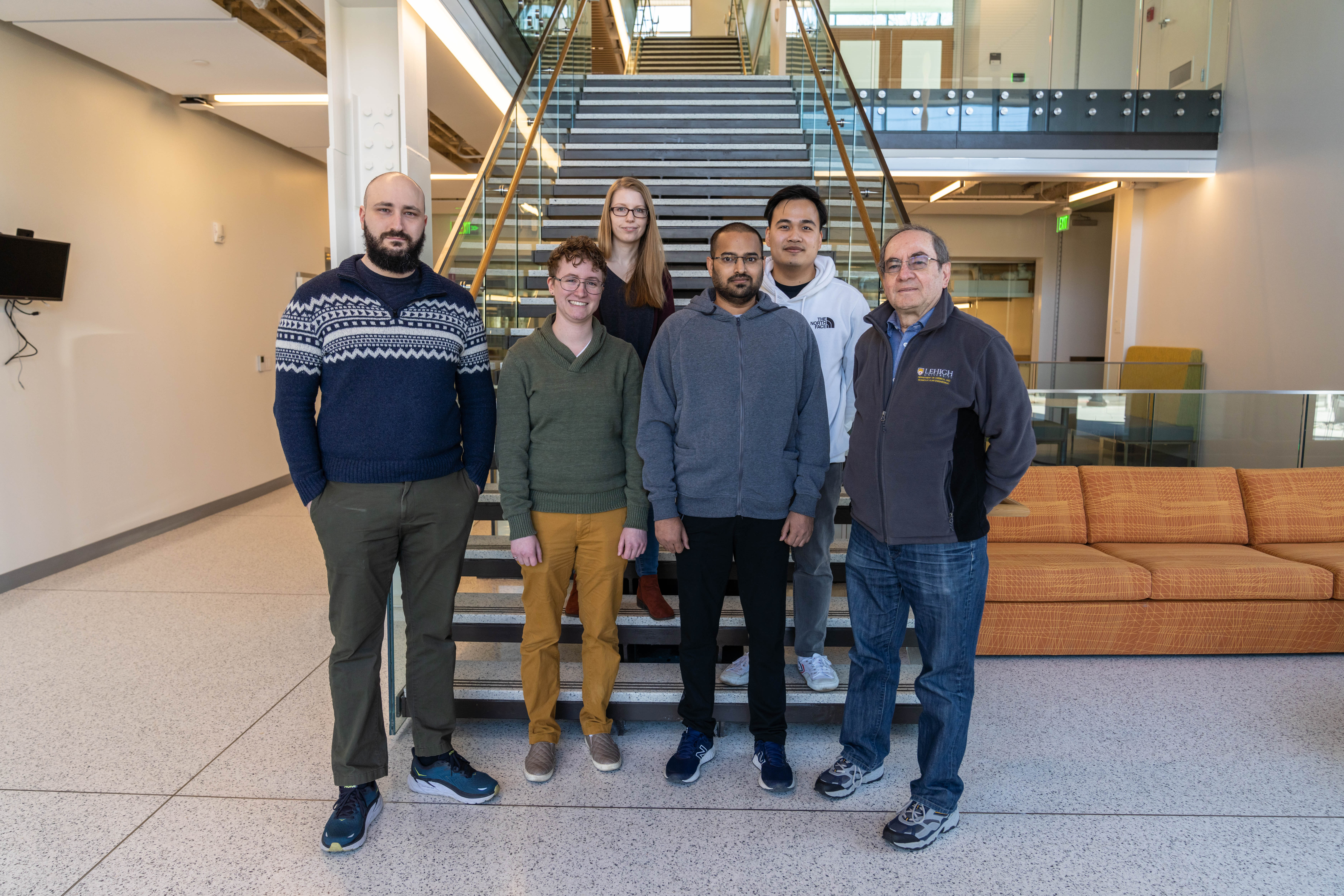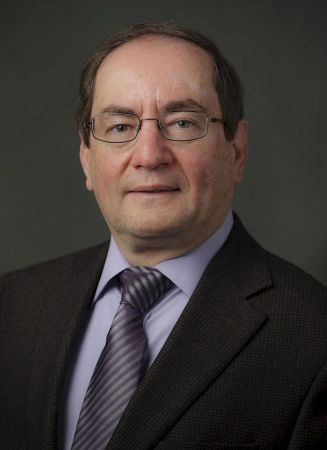Research.com, a leading academic platform for researchers, released their 2023 Edition Ranking of the Best Scientists in the field of Chemistry. Israel E. Wachs, G. Whitney Snyder Professor of Chemical and Biomolecular Engineering at Lehigh has been listed as #265 in the world ranking and #138 in the United States.
The ranking is based on D-index (Discipline H-index) metric, which only includes papers and citation values for an examined discipline; and includes only leading scientists with D-index of at least 40 for academic publications made in the area of Chemistry.
Wachs also recently crossed an important citation landmark -- his Google Scholar h-index is now 125 with a total of 45,358 citations, and he is the top cited faculty member at Lehigh. Shanghai World Ranking created a list of most cited researchers when they prepared their rankings. In this list of most cited researchers, there are three Lehigh faculty -- Wachs (subject Chem Engineering), Dan M. Frangopol (subject Civil Engineering) and Mayuresh Kothare (subject Electrical Engineering).
“I am humbled to find out that my research contributions to surface chemistry and catalysis have ranked me among the best chemical scientists nationally and internationally. The goal of my research is to advance the scientific molecular level knowledge of the surface chemistry and catalysis fields” says Wachs who began his path to chemical engineering in high school.
Upon entering college (The City College of City University of New York), he quickly majored in chemical engineering, as the field allowed integration of his interests in both chemistry and mathematics. After completing his undergraduate studies, Wachs wanted to further continue studying chemical engineering and pursued a PhD in chemical engineering at Stanford University, where he found his niche in the surface chemistry and catalysis discipline, which combined both his interest fields. After receiving his PhD, Wachs sought a position in an industrial research laboratory at Exxon Research & Engineering Company, which provided exposure to the applied side of surface chemistry and catalysis. “After several years in industry, my interests turned toward the fundamental side of the discipline, leading me to return to academia at Lehigh University.”
 In addition to his faculty role at Lehigh, Wachs also serves as Director of the Operando Molecular Spectroscopy and Catalysis Research Lab. Graduate students Dang Nguyen, Erin Sobchinsky, Eli Ream, and postdoc Bar Mosevitzky Lis are all part of the Wachs’ research group.
In addition to his faculty role at Lehigh, Wachs also serves as Director of the Operando Molecular Spectroscopy and Catalysis Research Lab. Graduate students Dang Nguyen, Erin Sobchinsky, Eli Ream, and postdoc Bar Mosevitzky Lis are all part of the Wachs’ research group. Nguyen is a second year Ph.D. student in the Chemical and Biomolecular Engineering Department. “Before coming to Lehigh, my recollection about catalysis was merely a course on reaction engineering. Prof. Wachs, through his patience and dedication, showed me a comprehensive picture of how beneficial our research could be to the industrial process. What I love the most about working with Prof. Wachs is, besides being an encyclopedia of mixed metal oxide catalysis, his way of treating every student with humility and kindness. Oftentimes, he will show up in the office with a bag of delicious bagels and Snapple juice, for no reason at all” says Nguyen who plans to pursue the discipline through an industry position upon his 2024 graduation.
Sobchinsky and Ream are both 4th year PhD students in the Department of Chemical and Biomolecular Engineering. “Working with Prof. Wachs has been a great privilege and brought our group a lot of different opportunities. I was able to present my work as a student speaker at a monthly meeting of the Catalysis Club of Philadelphia due to Prof. Wach’s recommendation. These new connections will help me in the future” says Ream, who is also seeking industry employment upon graduation. “His greatest influence was teaching me his research approach and sharing his history of interesting catalytic facts along the way that are being used in everyday items” says Sobchinsky. “After graduation I plan to look for jobs in industry focusing on catalysis applied for environmental/clean energy applications, which were the concentration of many projects led by Prof. Wachs.”
In 2017, Mosevitzky Lis was a PhD student at the Israel Institute of Technology attending a conference where Prof. Wachs was keynote. “After I watched Prof. Wachs give his talk in Israel, I was instantly fascinated by his research” says Mosevitzky Lis, who was persuaded to transition his PhD major from combustion to heterogeneous catalysis. He took the first, big step of the transition in 2020 by moving to the U.S. for a postdoctoral position in the Wachs lab. “My exposure to Prof. Wachs's unique arsenal of foundational knowledge and the wide array of cutting-edge experimental techniques he has accumulated here at Lehigh have proven my expectation correct. His passion for research has been contagious over my years working with him, flaming my own passions. As an early career scientist, I've found Prof. Wachs's stories of his interactions with his fellow titans in the field of catalysis the most enjoyable, as they not only enriched my knowledge of the field's history, but also exposed me to the perpetual evolution of ideas within it. Over the last two years I've received several unsolicited invites for interviews at US-based industry and academic institutions, and my search for an academic position back in Israel has met with some success. I credit much of this to Prof. Wachs, not just because of his fierce support and force of gravitas, but also due to the invaluable experience and knowledge I've accumulated here under his encouragement and guidance, for which I'll be forever in his debt." Mosevitzky Lis is being recruited to a university abroad upon completion of his work at the year's end.
While Wachs’ laboratory students actively feel they are pursuing their research interest in a rewarding environment, Prof. Wachs himself similarly reflects. “At Lehigh University, I have been able to pursue my fundamental research interests. My decision to focus my career on surface chemistry and catalysis is the best decision I made in my chemical engineering career since it is truly wonderful to be able to continue enjoying my research activities and sharing my knowledge. Receiving these historic recognitions for my research contributions is just the ‘icing on the cake’.”
Department/Program:

